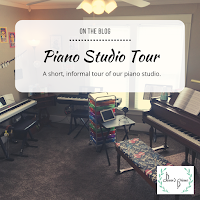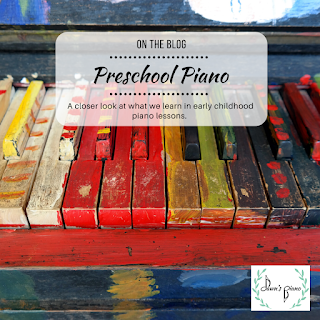Piano Studio Tour!

Today I'm sharing a quick video tour of our piano studio! Please forgive the camera shakes as this is just an informal video blog to invite you all into the studio for a look around. Whether you are someone who follows the studio from online, or an enrolled student that has made the social distancing switch to online lessons, come on in and enjoy a minute or two in our studio - including some new posters! Also, since I'm set up for online lessons at present, you can see what my basic online teaching setup looks like. For anyone at home (student or teacher) who is making the switch to online lessons needing some encouragement, hopefully this will help. And here's the video tour: Be well, be safe and stay in touch these next couple months!



